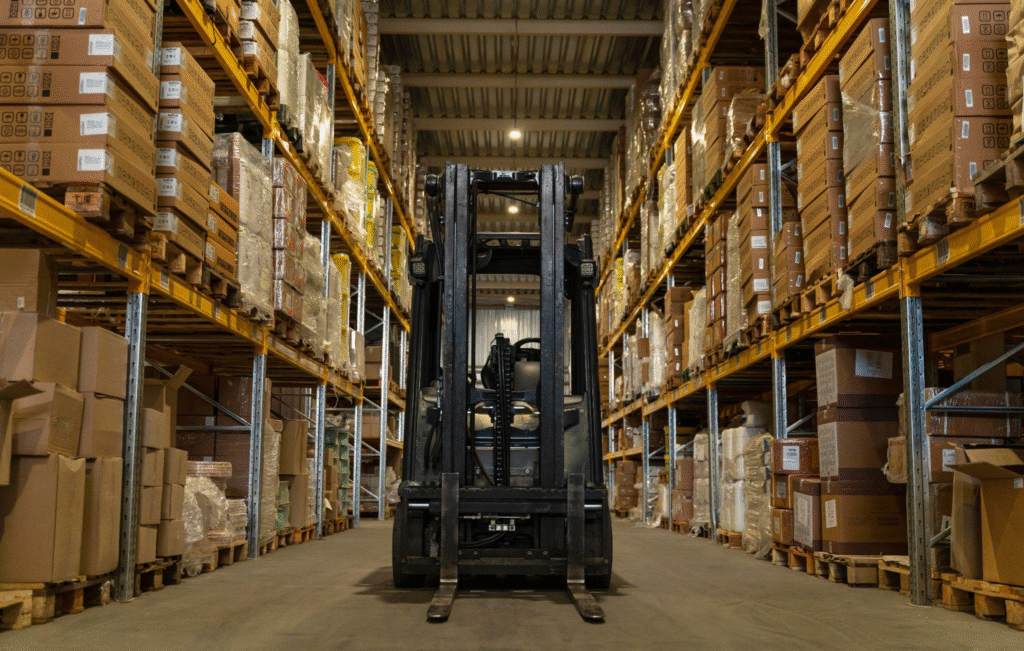Highway collisions involving commercial trucks are among the most devastating accidents seen in Texas. An 18-wheeler accident claim is unlike a typical car accident case because of the scale of damage, the number of potentially responsible parties, and the complex insurance questions that follow. Victims often face mounting medical bills, lost wages, and prolonged emotional distress, leaving them unsure of how to move forward. Understanding the parties who may share liability, the insurance systems at play, and the resources available is essential for anyone caught in such a situation.
The Serious Nature of 18-Wheeler Accidents
Accidents involving large trucks are rarely minor. With vehicles weighing up to 80,000 pounds, the impact of an 18-wheeler crash can cause catastrophic injuries and significant property damage. Survivors often deal with long-term disabilities or extended recovery periods. Beyond physical harm, these accidents also carry immense financial consequences, as victims are frequently unable to return to work immediately. Families can face the added burden of paying for specialized medical care, rehabilitation services, and modifications to homes or vehicles to accommodate long-term injuries.
This heightened severity is why the law treats these cases differently. Multiple entities can be at fault, and insurance coverage is often spread across several policies. Victims need clarity on these factors in order to pursue fair compensation. Understanding how liability is divided among drivers, trucking companies, maintenance providers, and cargo loaders is vital. Without this knowledge, victims risk losing access to resources that could cover their medical costs, replace lost income, and provide for future needs.

Liability in 18-Wheeler Accident Claims
Truck Drivers
The most obvious party often considered in an 18-wheeler accident claim is the driver. Fatigue, distraction, and impairment remain the leading causes of serious truck accidents. Despite federal regulations requiring rest periods and limiting driving hours, violations continue to occur. Speeding or ignoring traffic laws also makes drivers personally responsible for the damage they cause.
Trucking Companies
While a driver may have acted negligently, the trucking company itself often holds liability as well. Employers can be responsible for the actions of their drivers under Texas law, especially if they failed to enforce safety policies or knowingly pressured drivers to meet unrealistic delivery deadlines. Some companies even cut corners in hiring, skipping thorough background checks or overlooking past driving violations. These choices put unqualified individuals behind the wheel of massive vehicles, raising the risk for everyone on the road.
Maintenance Contractors
An overlooked but important area of liability involves maintenance. Trucks require consistent inspections and repairs to remain safe. If a brake failure, tire blowout, or engine malfunction causes a crash, the party in charge of upkeep may be accountable. Whether it is an outside contractor or the trucking company’s own mechanics, neglecting repairs can turn a vehicle into a hazard.

Cargo Loaders
In some cases, cargo loading teams are part of the equation. Overloaded or improperly balanced trailers contribute to rollovers and jackknife accidents. When a crash results from these conditions, the company or individuals responsible for loading can be held legally liable.
By identifying all potential parties, victims can pursue compensation from multiple angles, which is often necessary because the damages in truck accident cases are so extensive.
Insurance Issues in Truck Accident Cases
Insurance coverage following an 18-wheeler accident can be more complicated than expected. Trucking companies typically carry large commercial policies, sometimes with multiple layers of coverage. However, just because coverage exists does not mean insurance companies are eager to pay fairly.
Multiple Insurers Involved
There may be separate insurers for the driver, the trucking company, and even the company that owns the trailer. Victims quickly find themselves dealing with adjusters who work hard to minimize payouts. Each insurer may try to shift blame onto another party, leaving victims stuck in the middle.
Tactics Used Against Victims
Insurance companies often pressure victims to accept low settlements early in the process. They may request recorded statements designed to weaken the claim or question the extent of injuries. Some adjusters argue that pre-existing conditions—not the accident—caused ongoing medical issues. Without guidance, victims risk signing away their rights for far less than what their case is worth.
The Importance of Documentation
For those pursuing 18-wheeler accident claims, detailed documentation makes a difference. Medical records, police reports, photos of the crash scene, and witness testimony strengthen the case. Keeping records of lost wages, therapy costs, and long-term rehabilitation needs also helps demonstrate the financial toll of the accident.
The Human Toll of 18-Wheeler Accidents
Beyond the legal and insurance aspects, it is important to remember the personal impact. Victims often deal with physical pain that extends for months or even years. Emotional distress, anxiety, and post-traumatic stress are common following such traumatic events. Families also suffer, as caregivers step in to support injured loved ones.
Financial stress only compounds the problem. Hospital bills, physical therapy, and adaptive medical equipment quickly overwhelm even those with health insurance. These pressures highlight why pursuing fair compensation is not just about justice but about survival and stability.

The Importance of Federal and State Regulations
18-wheeler operations in Texas are subject to strict federal and state safety regulations. The Federal Motor Carrier Safety Administration (FMCSA) sets rules for driver rest periods, maximum weight limits, and regular vehicle inspections. Texas also enforces state-specific laws governing how trucking companies operate within its borders. These measures are intended to reduce accidents, but violations remain common. Drivers sometimes exceed their allowable hours behind the wheel, and companies occasionally overload trailers or skip scheduled inspections.
When these violations lead to accidents, they become critical elements of a victim’s case. Demonstrating a regulatory breach often strengthens an 18-wheeler accident claim because it shows negligence or reckless disregard for safety. Victims who understand these regulations are better positioned to hold drivers and companies accountable, ensuring they do not shoulder the consequences of preventable failures alone.

Technology’s Role in Modern Truck Accident Cases
Technology increasingly plays a vital role in determining fault after a truck accident. Many commercial trucks are equipped with electronic logging devices (ELDs) that record driving hours, speed, and rest breaks. Dash cameras and GPS systems also provide valuable evidence, offering a clearer picture of how the accident occurred. In some cases, black box data from the truck itself can reveal speed, braking patterns, and steering actions in the moments before impact.
Accessing and analyzing this evidence helps establish liability, particularly when conflicting accounts exist between the driver, the company, and the victim. However, trucking companies are often reluctant to share this information voluntarily, making it important for victims to pursue it through legal channels. Using technology-driven evidence can transform a case, ensuring that accountability is based on objective records rather than unreliable recollections or one-sided reports.
The Role of Expert Witnesses in Strengthening Claims
In many 18-wheeler accident cases, expert witnesses play a central role in explaining technical details that the average juror or insurance adjuster might not understand. Accident reconstruction specialists can recreate the events of a collision to show how speed, weight distribution, or driver error contributed to the crash. Medical experts provide testimony about the long-term impact of injuries, helping demonstrate future costs and ongoing care needs.
Economists may also be called to calculate lost earning potential for victims unable to return to their previous careers. Each of these professionals provides insights that add credibility and strength to a claim. Without their input, it can be challenging to fully illustrate the consequences of an accident. By including expert perspectives, victims create a comprehensive picture that not only explains what happened but also highlights the true extent of physical, emotional, and financial damages.
Long-Term Considerations for Victims and Families
The aftermath of an 18-wheeler accident extends far beyond the initial weeks or months. Many victims require years of treatment, rehabilitation, and lifestyle adjustments to cope with permanent injuries. Families may also need to restructure daily life, taking on caregiving responsibilities or facing reduced household income. Planning for these long-term needs is an essential part of an accident claim. Compensation must address not only immediate hospital bills but also future surgeries, therapy, medication, and adaptive equipment.
Children and spouses are often directly impacted, making financial stability a central concern for the entire household. Without careful consideration of these ongoing expenses, victims risk settling for amounts that fail to cover their future. By recognizing these long-term effects, accident claims shift from short-term recovery toward securing a foundation for lasting stability and resilience for both victims and their loved ones.
The Role of Legal Resources
Understanding the legal process can be overwhelming. Victims often feel unprepared to handle aggressive insurers or navigate the multiple parties involved. Legal resources can help level the playing field, ensuring victims understand their rights and have the tools to protect them.
One notable example is the book From Crash to Cash, which provides straightforward information for accident victims. Written to guide individuals through the often confusing process of seeking compensation, this resource breaks down essential steps and considerations. For anyone facing the challenges of an 18-wheeler accident claim, having such a resource on hand can bring clarity and confidence.
Common Questions Victims Have
How Long Do Victims Have to File a Claim?
In Texas, victims generally have two years from the date of the accident to file a personal injury claim. This statute of limitations is firm, and missing the deadline typically means losing the chance to pursue compensation.
What Types of Compensation Are Available?
Victims may be entitled to recover damages for medical expenses, lost income, property damage, pain and suffering, and future care needs. In certain cases involving gross negligence, punitive damages may also be available.
Do Victims Have to Go to Court?
Not every case ends up in trial. Many are resolved through settlements with insurance companies. However, preparing a case thoroughly as if it will go to court ensures stronger negotiation leverage and readiness if a trial becomes necessary.

Protecting Your Rights and Securing Your Future
An 18-wheeler accident claim in Texas is far more complex than most personal injury cases, with multiple parties and insurers involved. Victims must understand liability factors, insurance challenges, and the human cost of these devastating accidents to seek justice effectively. Having access to informative resources such as From Crash to Cash can provide much-needed clarity during a difficult time.
Anyone facing the aftermath of a truck accident deserves support in securing medical recovery, financial stability, and peace of mind. The right legal guidance makes all the difference, whether it is understanding fault, dealing with insurers, or pursuing rightful compensation.
For those seeking knowledgeable assistance, Trust Attorneys, Estate Planning consultation, and Asset Protection Lawyers in Texas represent the type of professional legal help that ensures both present challenges and future planning needs are addressed. If you or someone you know has been affected, reach out to Mike Massey Law, PLLC, for guidance that can help turn recovery into a reality.
Contact us today





